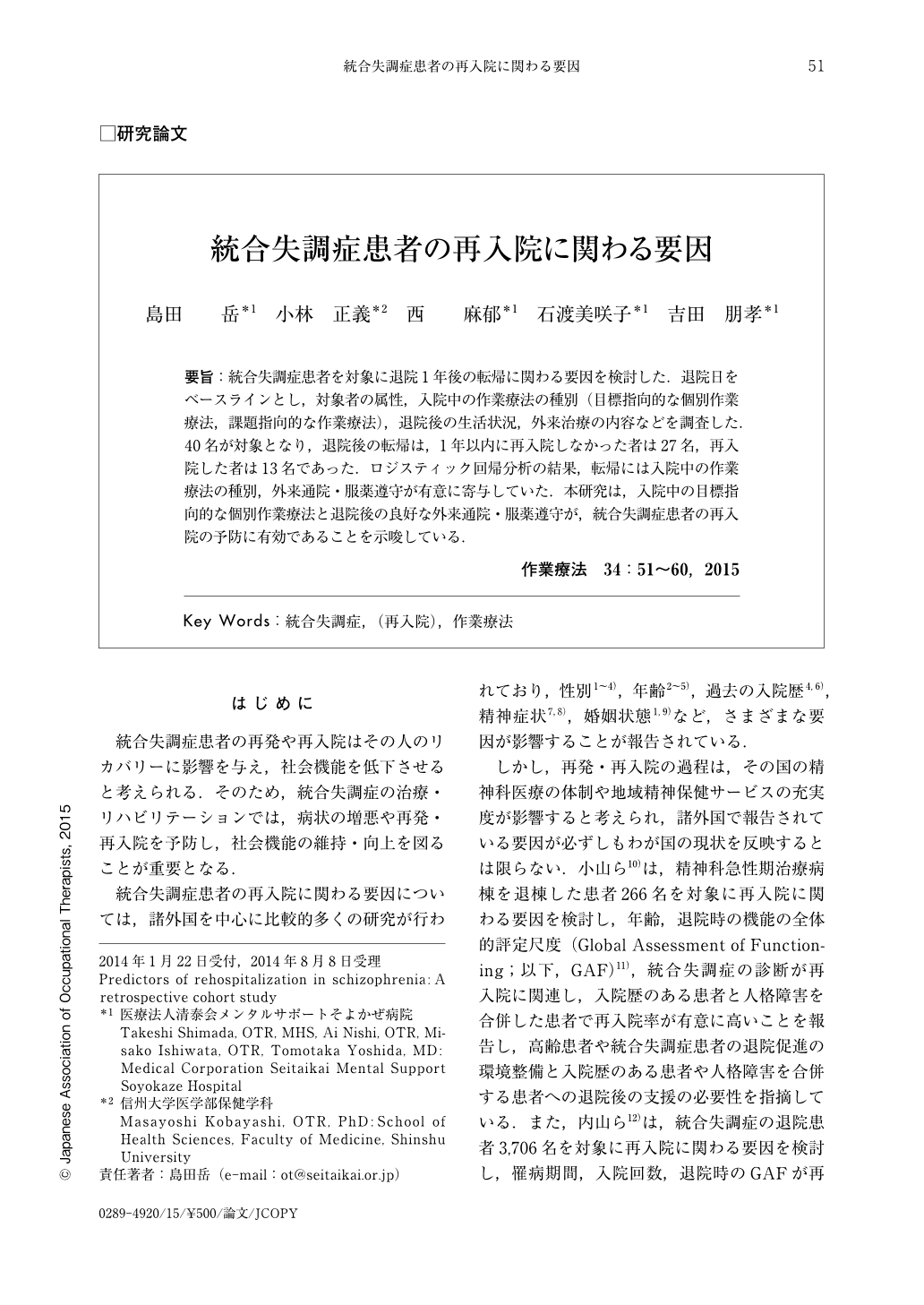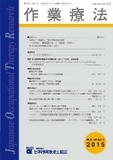Japanese
English
- 販売していません
- Abstract 文献概要
- 1ページ目 Look Inside
- 参考文献 Reference
- サイト内被引用 Cited by
要旨:統合失調症患者を対象に退院1年後の転帰に関わる要因を検討した.退院日をベースラインとし,対象者の属性,入院中の作業療法の種別(目標指向的な個別作業療法,課題指向的な作業療法),退院後の生活状況,外来治療の内容などを調査した.40名が対象となり,退院後の転帰は,1年以内に再入院しなかった者は27名,再入院した者は13名であった.ロジスティック回帰分析の結果,転帰には入院中の作業療法の種別,外来通院・服薬遵守が有意に寄与していた.本研究は,入院中の目標指向的な個別作業療法と退院後の良好な外来通院・服薬遵守が,統合失調症患者の再入院の予防に有効であることを示唆している.
The objective of this study was to investigate the predictors of rehospitalization in people with schizophrenia. Participants of this study were people with schizophrenia who were discharged to a psychiatric hospital within 1 year after hospitalization. We conducted a 1-year follow-up study as the baseline at discharge. We assessed demographic data in the baseline, the type of occupational therapy during hospitalization (the individually structured goal-oriented individual occupational therapy and the voluntarily structured task-oriented occupational therapy), community living conditions after discharge, and contents of the outpatient treatment (outpatient occupational therapy, day-care treatment, home-visit nursing, adherence to outpatient treatment and medication). In the 1-year follow-up, forty participants were divided into two groups : a stable group (n=27) and a rehospitalization group (n=13). On logistic regression analysis, the type of occupational therapy during hospitalization and adherence to outpatient treatment and medication were found to be the significant contributing factors of rehospitalization. This study suggests that the goal-oriented individual occupational therapy during hospitalization and good adherence to outpatient treatment and medication are effective to prevent the rehospitalization of people with schizophrenia.

Copyright © 2015, Japanese Association of Occupational Therapists. All rights reserved.


